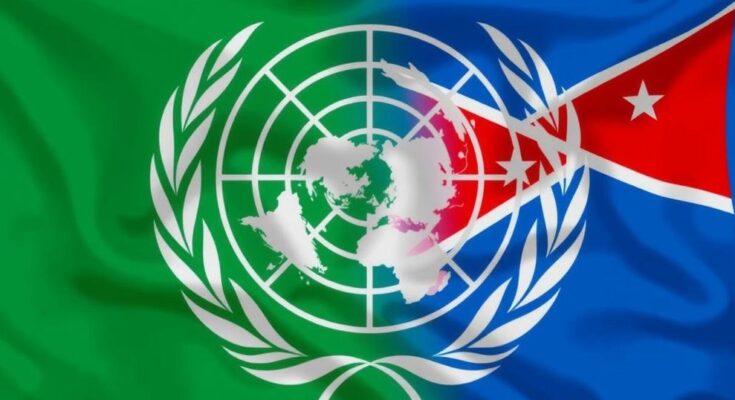Papua New Guinea has declared a boycott of the upcoming UN climate summit, criticizing it as ineffective and dominated by empty pledges from major polluters. Foreign Minister Justin Tkatchenko expressed concerns over the lack of progress in climate negotiations, stating the nation will instead seek to establish bilateral climate agreements, particularly with countries willing to engage in meaningful collaboration.
Papua New Guinea has announced its intention to boycott the upcoming UN climate summit, describing the negotiations aimed at addressing global warming as a “waste of time,” dominated by empty promises from major polluting nations. Foreign Minister Justin Tkatchenko criticized the gathering, expressing frustration with the lack of tangible outcomes and asserting that the nation should not expend resources on what he termed a futile endeavor, given the ongoing ineffectiveness of these talks. With Papua New Guinea home to the third-largest rainforest globally, the country finds itself at a heightened risk from climate change, despite its role in absorbing significant pollution from wealthier nations. Tkatchenko articulated a sentiment of disillusionment with the climate discussions over recent years, calling them a “merry-go-round” that has yielded little progress. He emphasized, “COP is a total waste of time” while noting the growing discontent among smaller island states that feel overlooked and unacknowledged in these forums. Rather than participating in the UN’s COP29 summit scheduled for next month in Azerbaijan, Papua New Guinea intends to pursue bilateral climate agreements, particularly with nations willing to collaborate on effective climate solutions. An important meeting preceding the COP29 summit left many frustrated due to insufficient advancements on a financial deal to assist developing countries. As one of the Pacific nations leading an International Court of Justice case aimed at holding polluters accountable, Papua New Guinea seeks to amplify its voice and results through direct negotiations, rather than within the confines of the UN’s climate conferences.
Papua New Guinea’s announcement to boycott the upcoming UN climate summit is set against a backdrop of increasing criticism of the effectiveness of international climate negotiations. The United Nations climate summits, particularly the Conference of the Parties (COP), were initially vehicles to forge significant agreements aimed at combating climate change, such as the Paris Agreement. However, many smaller nations, especially from the Pacific region, have expressed growing frustration with the perceived inaction and empty commitments from larger, more polluting countries. The island nation of Papua New Guinea has unique vulnerabilities to climate change due to its geography and socio-economic status, making it imperative for its government to seek subtler yet effective approaches to climate negotiations that recognize its specific needs and contributions as a substantial rainforest nation, one that plays a critical role in global carbon absorption.
In summary, Papua New Guinea’s decision to boycott the UN climate summit underscores a broader frustration with the effectiveness of international climate dialogue, especially concerning the disillusionment of vulnerable nations that feel their concerns are sidelined. By choosing to pursue bilateral agreements, Papua New Guinea aims to forge more productive partnerships centered on real change, thereby emphasizing its agency in international climate discourse.
Original Source: www.rfi.fr




